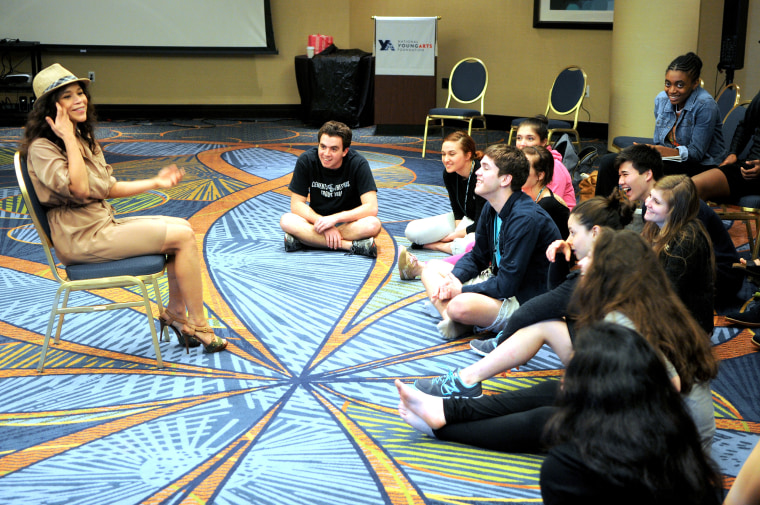The educational system in America is antiquated: We live in the 21st century, in which kids are constantly online and plugged in, and then we ask them to come to school, walk into a classroom and just sit there and memorize. It doesn't work anymore. We need to think about ways to keep students engaged, and we need to think about integrating arts in the classroom and arts in our schools.
Using the arts in teaching other subjects — known as arts education — is based on kinesthetics, so it uses all of your senses: It uses movement, sound, sight and your vocal abilities. It makes you get up off of your feet and participate and become part of the classroom.
A great example of this kind of arts education comes from the non-profit that I helped co-found 25 years ago, the Urban Arts Partnership. We serve 15,000 kids per year, but we have one specific program that services kids from ages 18 to 20 who can't graduate because they haven't been able to pass the New York State Regents exam. Our organization took that core curriculum and broke it down into a three-week course of music, songs, interactive plays, poetry and word games. We have an 80 percent success rate for graduation.
Having the arts underfunded in schools is such a disservice to our young people — not only to their soul, but also to their future.
It works because kids not only have their intelligence sparked, but they also have their emotional intelligence sparked, and we have them working in tandem with each other. The information we're giving them is therefore absorbed much more deeply.
And if you're specifically talking about art for art's sake, kids don't just end up learning more about music or art. If you put a kid in band and they learn a new instrument, and then they excel, their self-esteem just shoots up to the roof. If you have a kid and you put a camera in their hand and you teach them photography, or you put a paint brush in their hand, or you put a drumstick in their hands, they become part of the learning process. They then want to do the same things inside their English, science, math and social studies classrooms; that's why it's important to have programs that teach the arts in schools.
Plus, having the arts in the schools help kids become part of a community. You look at the movie "American Pie" with all the jokes about being in band, but that was a community of so-called geeks who felt that they belonged to something. That's what having arts programs available to kids does as well.
We need to think about ways to keep students engaged, and we need to think about integrating arts in the classroom and arts in our schools.
Having the arts underfunded in schools is such a disservice to our young people — not only to their soul, but also to their future. If you don't have a child who feels alive and a part of the conversation, and doesn't excel in school, you're not adding to the economy. You're not adding to the future; you're not adding to their future. It's such a disservice.
I wish there was a mandate that the arts had to be taught in schools and appropriately funded, across this nation. I think that we would see a much higher graduation rate, a much higher enrollment in colleges, and a much higher employment rate, once young people become 18 years old.
Besides having it funded and mandated, I think that there needs to be substantial studies of the effects that arts education and access to art programs have on a child's K-12 education. Our charity sees the proof; we have the metrics, as do other arts education charities with whom we partner. That's how we are all able to get funding, because we show them the numbers and they say, An 80 percent success rate? Why are not other people investing in these types of programs as well?
If there were federally-funded or state-funded studies showing how much arts adds to education, maybe it would incentivize the government to help fund arts in our school system, from kindergarten through the twelfth grade. You've got to get them when they're young.
As told to THINK editor Megan Carpentier, edited and condensed for clarity
Rosie Perez's new show, “Rise,” airs Tuesdays at 9pm ET/PT on NBC.

